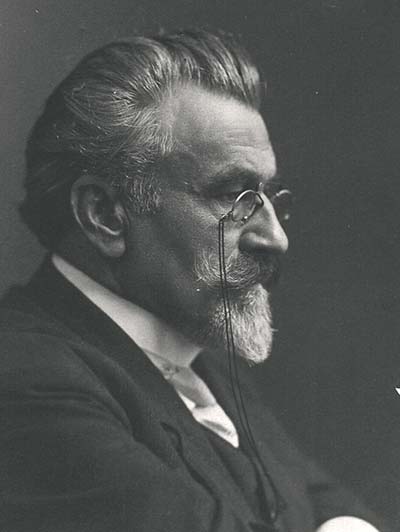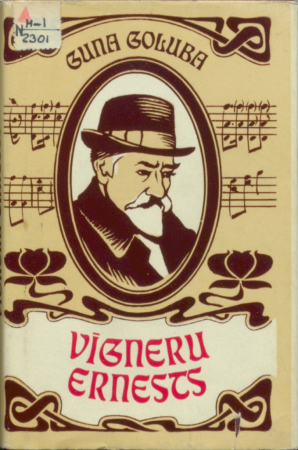Ernests Vīgners
1850–1933
Conductor, composer, folklore collector
Notable choir and orchestra conductor, composer and folklore collector. The first Latvian musician to receive professional education at the Moscow Conservatory, as well as one of the pioneers of Latvian professional music.
Born at the Liekmaņi homestead, Kalna muiža, Kuldīga District. Attended Graudupe Parish school, then the Irlava Teachers’ Seminary (1865-1867). Gained his first song-festival experience at the age of 15, when participated in the Kurzeme Song Festival in Dobele as a first violinist in the orchestra, (1870). Three years later, at the First All-Latvian Song Festival, the conductor was already participating with his own Renda male choir.
Worked as an elementary school teacher at Vandzene, Skrunda and Snēpele (1868-1873), becoming actively involved in folklore collecting. Using his acquired knowledge in the research and harmonisation of folk songs, in 1873 and 1874 he published two volumes of the Latvija collection of choral songs, in which he compiled four-part folk songs for a cappella male choirs. His arrangements of folk songs continue to be performed at song festivals.
In 1873, he enrolled in the Moscow Conservatory, where he studied piano, oboe and organ, later composition, including studying harmony with Peter Tchaikovsky. In both of his Moscow periods (1873-1885 and 1896-1920) he was a music teacher and the conductor of a number of choirs and orchestras. He also worked as a music teacher in Rīga and Liepāja (1886-1893 and 1920-1933), taught courses and classes for singing teachers and choir conductors.
Wrote the first elementary musical theory book to published in Latvian – A Preparation Course for Choral Singing, as well as publishing other methodological materials to improve conducting skills. As a result of his working experience, developed his own unique system for developing an ear for music – the phonological method and established and directed the Rīga Institute of Phonology (1920-1933) until the end of his life. Initiated the founding of the Rīga Latvian Society’s Music Committee (1889) and for some time actively collaborated with it.
“Everything about Vīgners’ personality was impressive, starting with his unusually fortunate appearance: he was a head taller than his colleagues. Together with the fiery courage of his stage presence, it seemed as though any resistance to his thinking, to his work would have been unwise, he quietened all his opponents with his emphatic priority,” said Professor Jāzeps Vītols in 1933. (Grauzdiņa, Ilma, Izredzētie (The Chosen Few), 2008, p 33)
A chief conductor at the IIIrd and IVth All-Latvian Song Festivals, Honorary chief conductor at the VIth All-Latvian Song Festival.
Bearer, Order of the Three Stars (1926).


